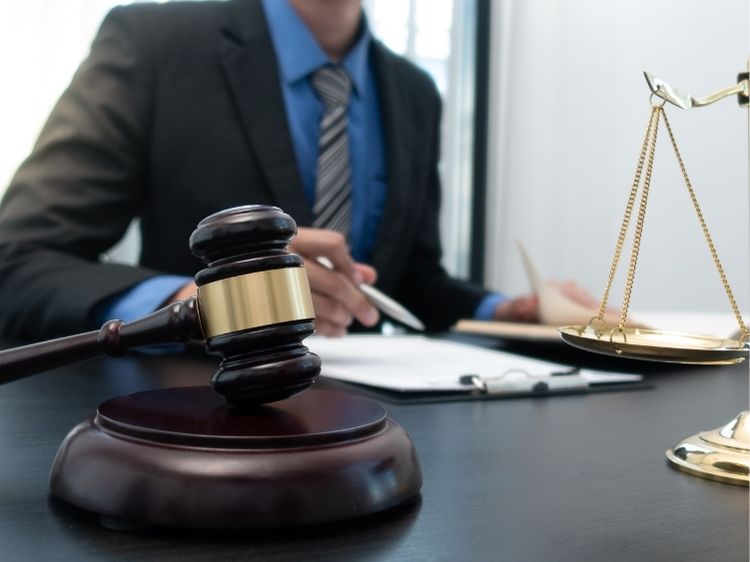Understanding the Role of Liability Lawyers
When life’s unpredictable moments lead to legal disputes, liability lawyers step in as your go-to experts. These professionals specialize in handling cases where negligence or responsibility is at play, ensuring you get fair representation and justice. Whether it’s a slip-and-fall case or a complex product liability claim, liability lawyers are equipped to navigate the legal labyrinth.
What Is a Liability Lawyer?
A liability lawyer focuses on cases where individuals or entities are held responsible for harm or damages caused to others. Their role encompasses various areas, including personal injury, professional negligence, and product liability. By investigating claims, negotiating settlements, or representing clients in court, they ensure accountability and legal fairness.
Why You Might Need a Liability Lawyer
Life happens, and sometimes, so do accidents. But when someone else’s negligence puts you in harm’s way, a liability lawyer can be your lifeline. Here’s why you might need one:
- Workplace Accidents: Injuries due to unsafe working conditions or negligence.
- Medical Malpractice: Cases involving errors by healthcare providers.
- Defective Products: Harm caused by faulty or dangerous products.
- Property Accidents: Incidents like slips, falls, or structural collapses.
In each of these cases, a liability lawyer ensures that the responsible party is held accountable and that victims receive appropriate compensation.
Types of Cases Handled by Liability Lawyers
Liability lawyers wear many hats depending on the type of case. Let’s break down the most common areas:
1. Personal Injury Cases
- Motor Vehicle Accidents: Injuries caused by car, motorcycle, or truck collisions.
- Slip-and-Fall Accidents: Cases where unsafe property conditions lead to harm.
- Dog Bites: Liability for pet owners when their animals attack.
2. Product Liability
- Defective Design: Products that are inherently dangerous due to design flaws.
- Manufacturing Defects: Mistakes during production causing harm.
- Failure to Warn: Products lacking adequate safety instructions or warnings.
3. Medical Malpractice
- Misdiagnosis or Delayed Diagnosis
- Surgical Errors
- Medication Mistakes
4. Premises Liability
- Injuries occurring on someone else’s property due to negligence.
- Examples: Falling debris, wet floors without warning signs.
5. Professional Negligence
- Cases where professionals like lawyers, accountants, or architects fail to uphold their duties, resulting in harm.
How to Choose the Right Liability Lawyer
Picking the right lawyer can feel overwhelming, but here are some practical tips to simplify the process:
- Experience Matters: Look for someone specializing in cases similar to yours.
- Reputation: Check reviews, testimonials, and success rates.
- Communication: Ensure they’re approachable and explain legal jargon in layman’s terms.
- Fee Structure: Understand their pricing—contingency fees are common in liability cases.
- Local Expertise: Laws vary by state, so a lawyer familiar with your area is a bonus.
The Process of Filing a Liability Claim
If you’ve suffered damages and want to file a claim, here’s what typically happens:
- Initial Consultation: Discuss your case details with a liability lawyer.
- Evidence Collection: Gather documentation like medical records, photos, or witness statements.
- Filing the Claim: Your lawyer drafts and submits the legal paperwork.
- Negotiation: Lawyers negotiate with the opposing party or their insurer for a fair settlement.
- Litigation: If no agreement is reached, the case goes to trial.
FAQs About Liability Lawyers
What does a liability lawyer do?
A liability lawyer represents clients in cases involving harm caused by negligence. They investigate claims, negotiate settlements, and litigate cases to ensure justice.
How much does hiring a liability lawyer cost?
Most liability lawyers work on a contingency fee basis, meaning they only get paid if you win. Typically, they take a percentage (20–40%) of the settlement.
When should I contact a liability lawyer?
It’s best to contact one as soon as possible after an incident. Quick action ensures crucial evidence is preserved, and you avoid missing legal deadlines.
Can I handle a liability claim without a lawyer?
While it’s possible, it’s not recommended. Liability cases often involve complex laws and negotiations, which a skilled lawyer can navigate effectively.
What’s the statute of limitations for liability cases?
It varies by state and case type, but generally, you have 2-4 years to file a claim.
Tips to Strengthen Your Liability Case
- Document Everything: Take photos, save medical bills, and jot down incident details immediately.
- Don’t Admit Fault: Even casual apologies can be used against you.
- Follow Medical Advice: Keep records of treatments and follow through on recommendations.
- Hire an Experienced Lawyer: Their expertise can make or break your case.
Summary: Why Liability Lawyers Are Essential
Liability lawyers are crucial advocates when life takes an unexpected turn. They ensure justice is served by holding the responsible parties accountable and securing fair compensation for victims. Whether you’re dealing with a slip-and-fall accident or a defective product, having a knowledgeable lawyer by your side makes all the difference.
Authoritative Links
- American Bar Association: www.americanbar.org
- National Trial Lawyers: www.thenationaltriallawyers.org
- Legal Information Institute: www.law.cornell.edu


